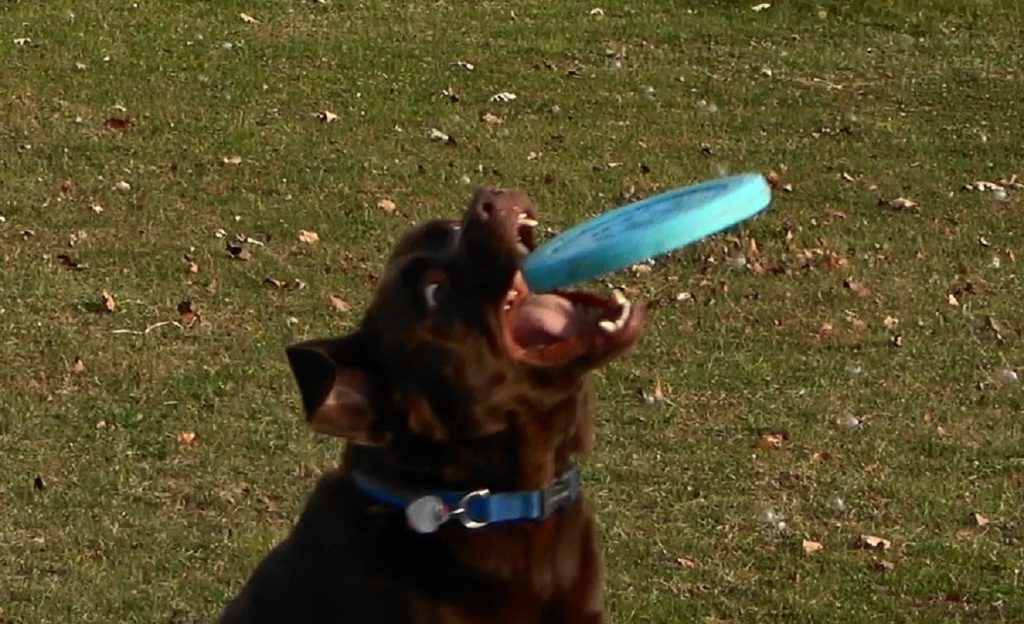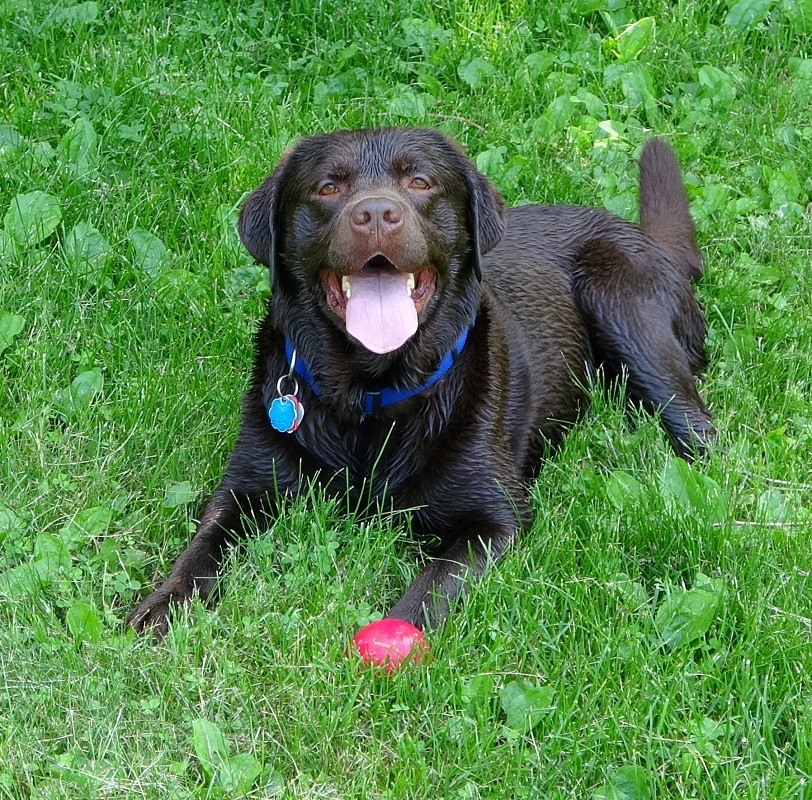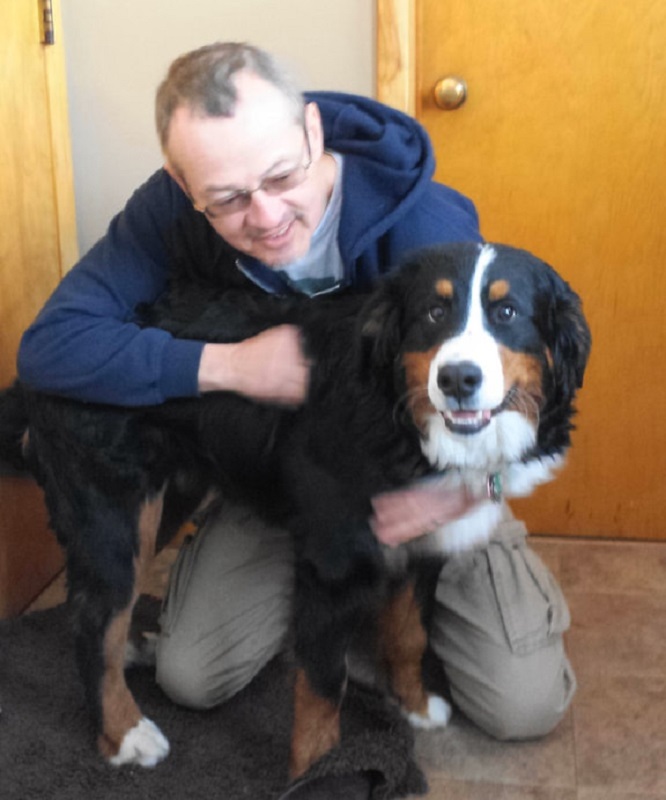Pets and Their People Blog
How Much Fetch Is Too Much?
How does a pet steward satisfy a dog’s strong desire to play without turning it into an obsession?
Most dogs love to play, and some dogs love it so much that it can become an obsessive behavior. When my wife and I adopted Bruno, a chocolate Labrador, the foster family told us that he would play fetch for hours. Uh-oh.
When I worked at a dog daycare, among the 200 dogs I knew, there was one who herded plastic balls constantly, all day long, for several days a week, never taking opportunities to relax. Too much constant excitement could lead to hyperarousal and have physical and mental health consequences. We wanted Bruno to have a joyful life but did not want playtime to develop into a behavioral problem.

(Photo provided by D. Antolec)
That’s Enough for Now
With Bruno, I selected a phrase to inform him that our play session was over. I say, “That’s enough for now” with a soft singsong voice, in descending notes.
The reason for using descending notes is based on my understanding of Dr. Patricia McConnell’s thesis research. She spent two years traveling and learning from trainers of various animal species how they used their voices to energize or relax an animal. What she learned was that using four rapidly ascending notes, such as saying “Pup, pup, pup, pup!” to a dog would excite and energize the animal. Or saying “Whoa” with a descending tone would slow down a horse.
Communicating It’s Time to Wind Down

(Photo provided by D. Antolec)
When I want to signal Bruno that our play session has ended, I do not want him to feel deprived of additional play or become frustrated. Rather, I want him to feel satisfied and begin to relax.
This is how it works. Several times throughout the day Bruno will bring a toy to me, so I stop what I am doing, and we play in the house, the yard or in the barnyard. He learns that communicating with me works, so there is no basis for frustration.
As an athletic dog, he loves to run after a ball or Frisbee and return it to me. I accommodate him for a long period of time if I am cleaning the barn because that chore takes a long time, or for shorter periods if I have other things to do. As Bruno repeatedly fetches the toy, I watch the speed of his return, or if he drops the toy to sniff about. If he slows down a bit or begins losing interest in the toy, I wait for him to fetch it one last time.
He always looks like he wants me to toss it again, but I put my open palm under his mouth and say, “That’s enough for now.”
Previously I taught him to drop whatever was in his mouth and my open palm became the cue for that behavior. I simply added that physical cue to the verbal phrase meaning we were done playing, and he made the connection.
Sometimes Bruno drops his toy after I say the phrase, and sometimes he automatically drops it when I open my palm. In either case, he is relaxed, and I praise and pet him, and he trots off with a happy gait. If we are in the barn, he goes straight to the water bucket for a drink, and on the way back to the house he stops to use the “toilet” beneath a grove of pine trees. He developed a predictable “wind down” routine of his own.
Once we are back in the house, Bruno often goes straight to his bed for a nap, or if I go work at my computer desk he prefers to lie at my feet. I think that he feels satisfied and is ready to relax.
Encouraging Relaxation
So that he’s not just running after balls and Frisbees, there is variety to the intensity and types of enrichment activities provided. We also take long sniffing walks around the property, I give him a bully stick to chew, or a snuffle mat with food hidden in it. He enjoys riding in the car as well, so after a game of fetch we may take a ride, which always relaxes him.
By giving him several fetch sessions each day, he gets to enjoy his favorite activity, but not for such duration that it overstimulates him.
Teaching your dog an “off switch” cue not only helps your dog relax, but it gives you some time to relax as well, rather than always having to tend to your dog’s entertainment. Give it a try!
About the Author

Daniel H. Antolec, PCT-A, CCBC-KA, CPDT-KA began teaching dogs in 2011 and founded Happy Buddha Dog Training . He teaches dogs in a way that makes it fun for pet stewards and pets alike.

